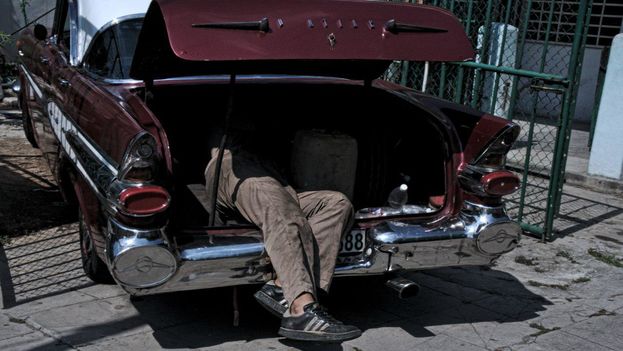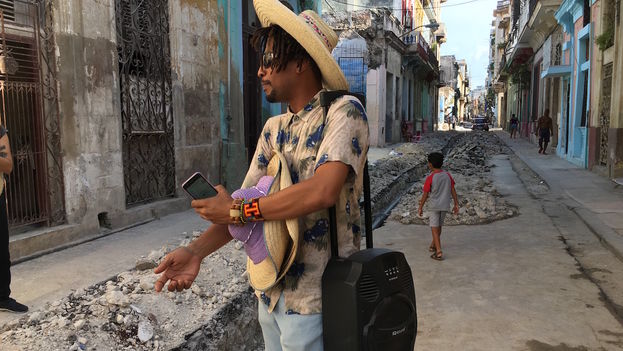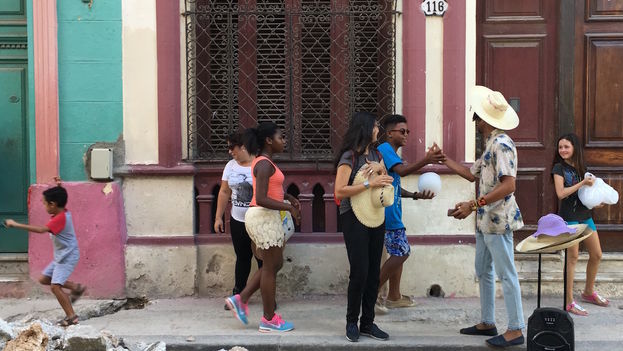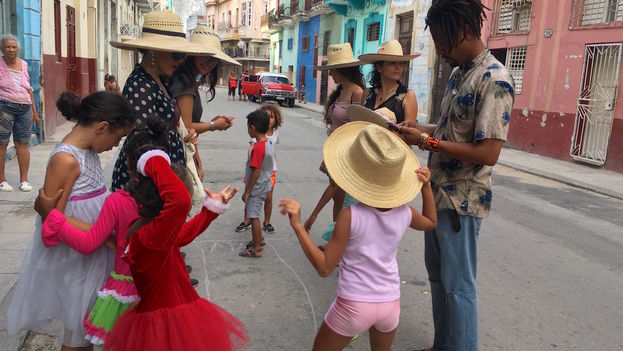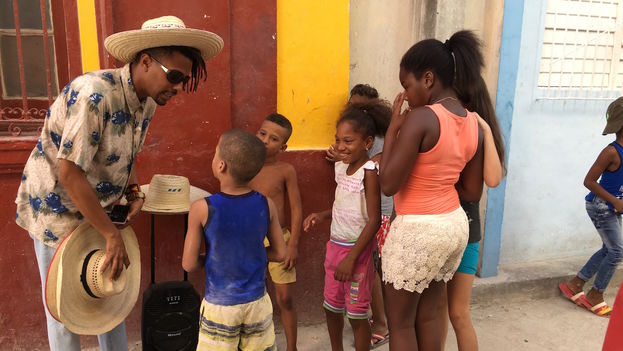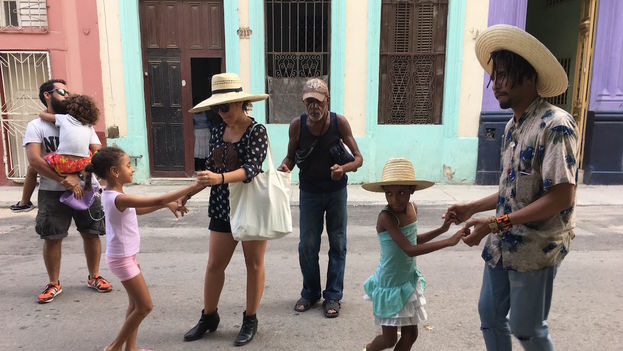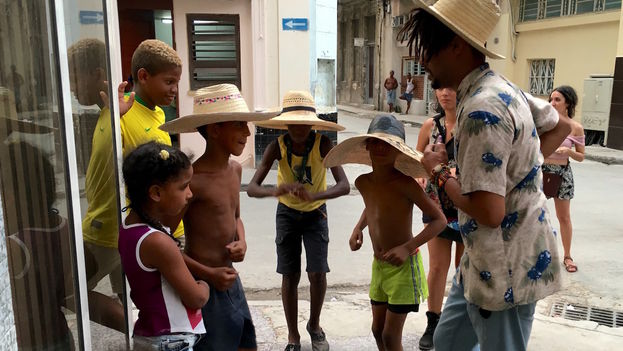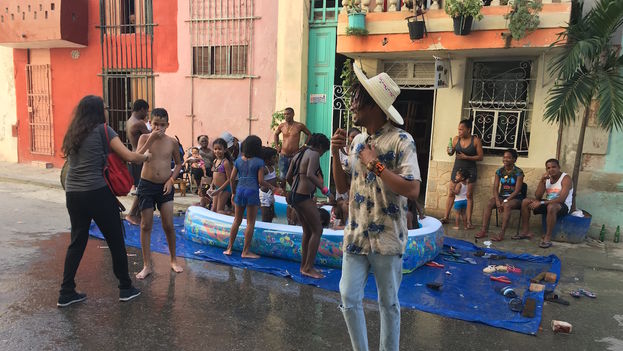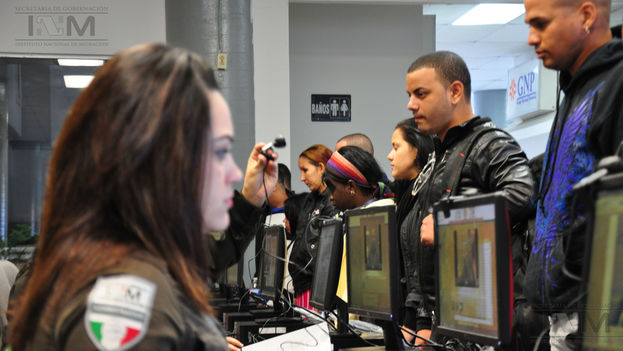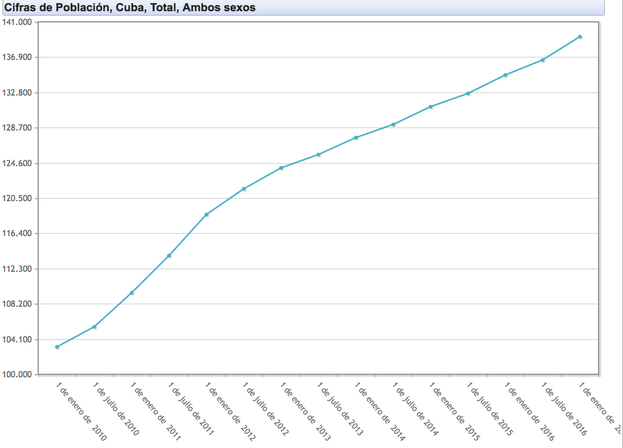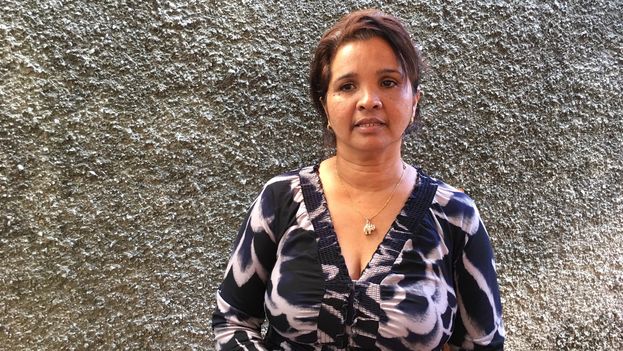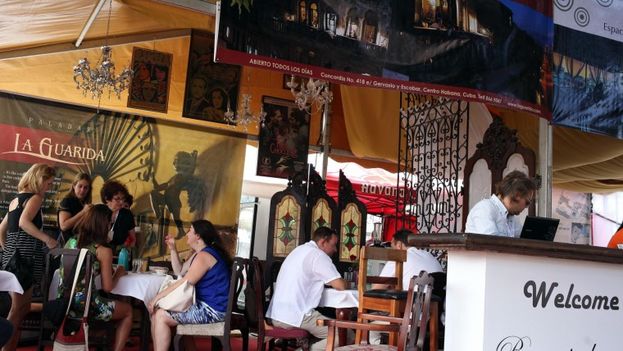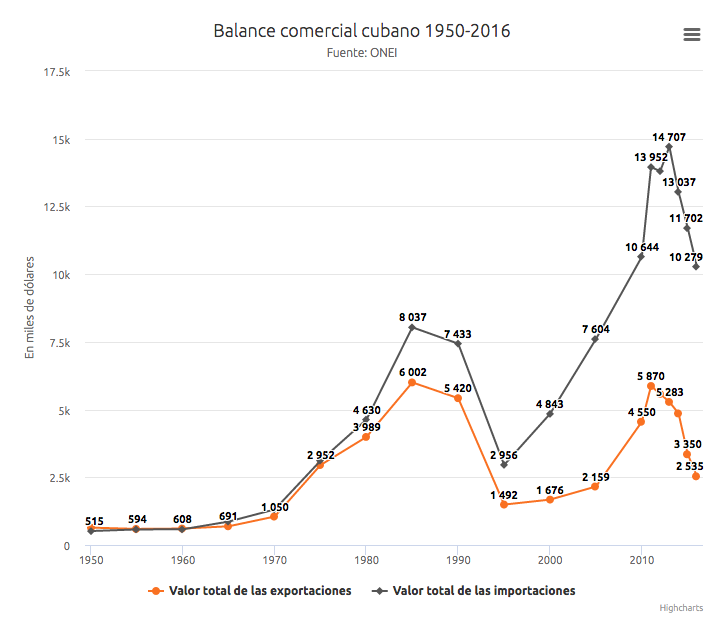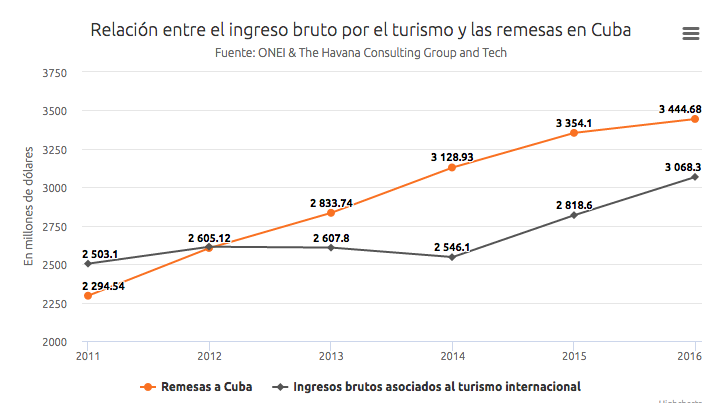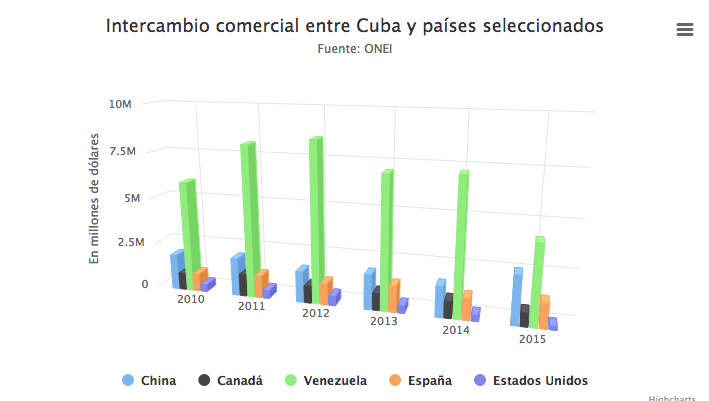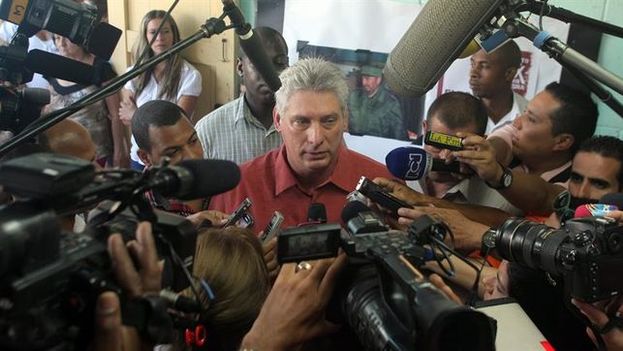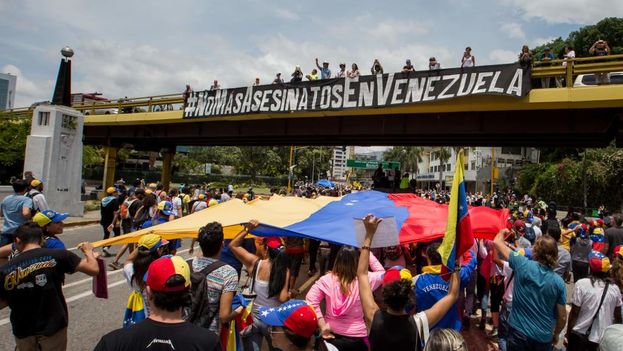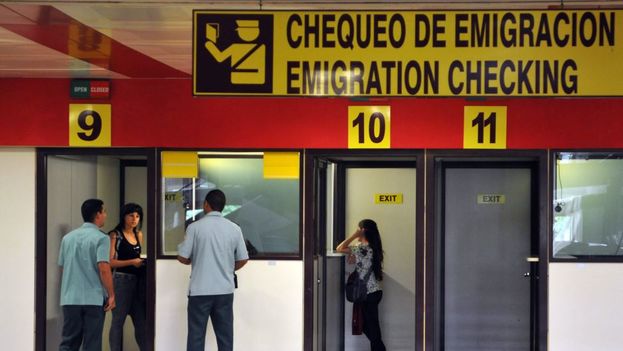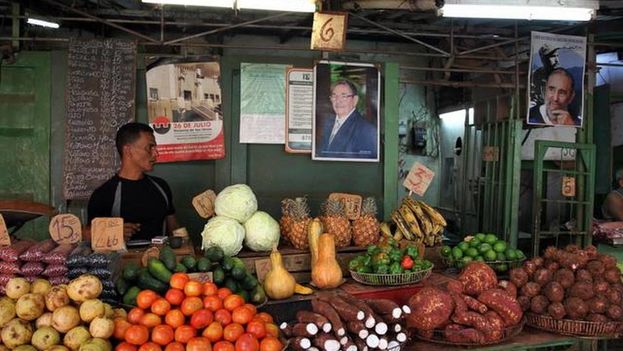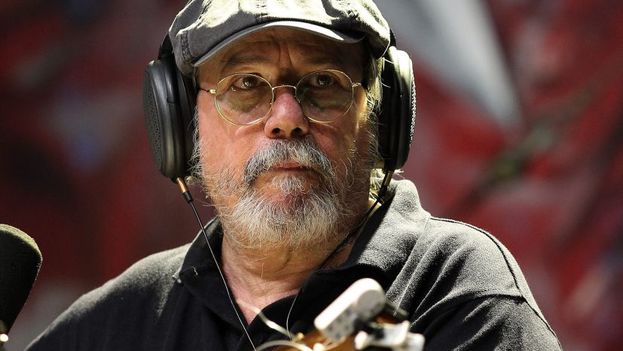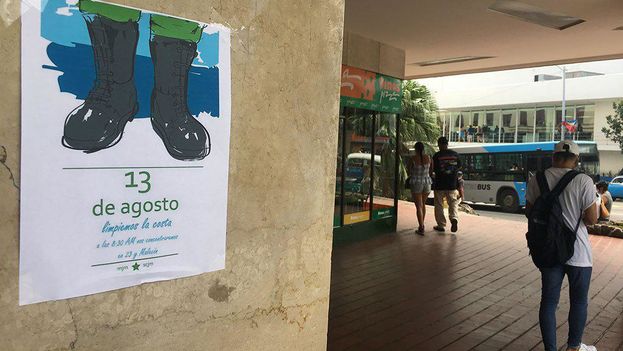
![]() 14ymedio, Zunilda Mata, Havana, 11 August 2017 — Military boots and olive green trousers drawn on a poster have provoked great anger among communist militants who seem to have managed, through their complaints, to get the organizers of a sanitation campaign to remove the poster from the streets and sewers near Havana’s Malecon.
14ymedio, Zunilda Mata, Havana, 11 August 2017 — Military boots and olive green trousers drawn on a poster have provoked great anger among communist militants who seem to have managed, through their complaints, to get the organizers of a sanitation campaign to remove the poster from the streets and sewers near Havana’s Malecon.
The initiative, with the motto “Clean the Coast,” was organized for this coming Sunday, 13 August, coinciding with the 91st anniversary of Fidel Castro’s birth. The date, coupled with the image, has been considered “disrespectful” to the deceased ex-president by some citizens, forcing, according to sources from one of the organizing entities, a cancellation of the day.
The cleaning activity was organized by the José Martí Cultural Society (SCJM) and the José Martí Youth Movement (MJM), but ultimately it has been replaced by other activities in the capital, said Reinaldo Perera, a member of the first of these associations. continue reading
“No, we are not going to undertake the activity that was initially planned in the area of the sidewalks on the Malecón to clean the sewers from the 23rd street to a little further down. It was only going to be a sanitary cleaning,” Perera points out.
However, another employee of the SCJM, who preferred to remain anonymous, told 14ymedio that “the poster was withdrawn and the cleaning canceled because several members of the Communist Party called to complain about the misuse of Fidel Castro’s image.”
“Showing that part of the body and particularly the military boots was not pleasing to many people,” according to the worker. “We were warned that we had to remove all the signs we had placed in the areas surrounding the Malecon.” Some, he adds, were also afraid that the poster would be interpreted as the announcement of a police operation.
Yussy, a 28-year-old transvestite, is among the frightened. “When we saw the poster everyone was scared because it said that on that day they would not let us go to the Malecón and the police would crack down on the jineteras (female hookers) and the pingueros (male hookers),” he says outside the Yara cinema, a few yards from the Habana Libre Hotel.
“It would not be the first or the last time they did something like this, but people did notice it because of the boots, an area of the body that is not shown that much; on posters they usually put the face and maybe also the shoulders,” reflects Yussy.
An employee of the cinema says that the poster caught people’s attention and tourists “were endlessly taking pictures… An elderly gentleman, very upset, asked if the management of the movie theater had put up the poster,” she said, and added that he was going to call whomever he had to to protest what he considered a lack of respect.
The Government has prepared numerous activities of remembrance on what would have been the former president’s birthday. Starting Wednesday, at the Expocuba fairgrounds, south of the capital, there are children’s games, displays of the operation of locally manufactured induction cookers, and a sale of hygiene products from the Suchel company.
Since the beginning of the month the Casa del Alba Cultural, located in Havana’s Vedado district, has had an photographic exposition titled Fidel: Intimate Portrait, with snapshots taken by his son Alejandro Castro.
Thousands of miles away, in Crimea, a eight-foot high monument was inaugurated with the image of Castro and the words: “Victory is perseverance.”

